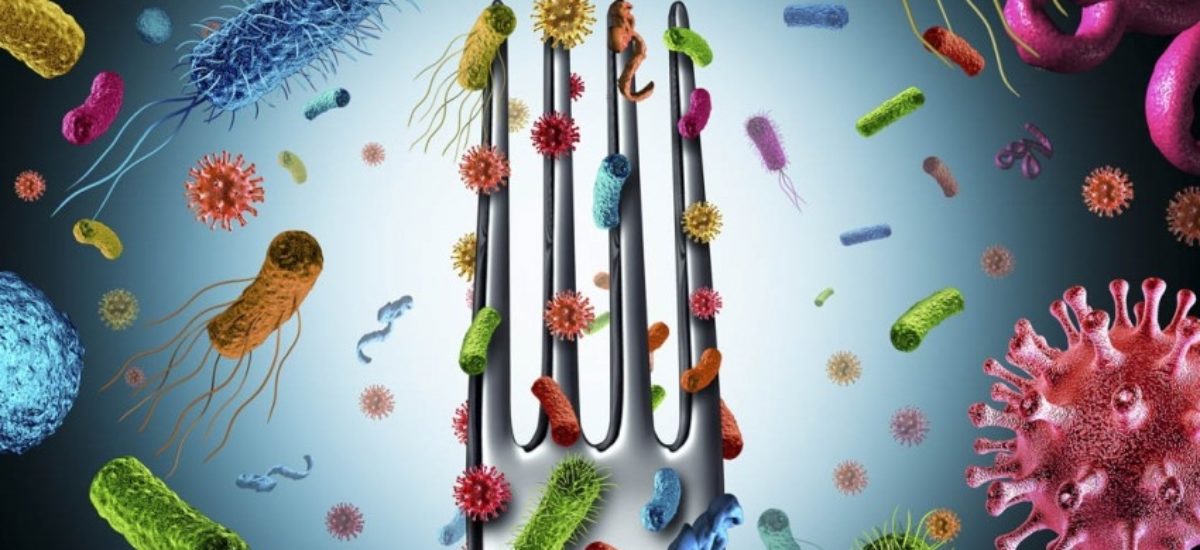Listeriosis is an infection caused by the bacterium Listeria monocytogenes that can occur in pregnant women, newborns, and patients with a compromised immune system (such as the elderly, AIDS patients, diabetics, etc.), and can be serious or difficult to control in many cases.
Listeria monocytogenes is dangerous when found in food.
Cases of listeriosis outbreaks are always associated with the consumption of food, most of the time packaged, that was contaminated by the bacteria in question (sausages, cheeses, smoked foods, unpasteurized products). It can take two to six weeks from the time a person ingests Listeria to the time they develop illness, making it difficult to identify exactly which food was contaminated.
People most vulnerable to Listeria monocytogenes are:
- Elders.
- Poorly controlled diabetics or with many years of evolution of the disease.
- Pregnant.
- Neonates.
- Patients with solid or haematological cancer, both because of the cancer itself and because of the chemotherapy treatment it entails.
- AIDS patients.
- Patients under chronic treatment with corticosteroids.
- Liver or kidney disease.
Listeriosis infection in a pregnant woman does not have a characteristic clinical picture or a considerable severity for the pregnant woman. It usually occurs in the third trimester and appears as a mild illness with low-grade fever, joint and muscle pain, and general malaise. It is frequently confused with a viral condition, and is rarely diagnosed.
The importance of Listeria infection in pregnancy is linked to the risk of infecting the fetus through the placenta.
When this happens, it can cause an abortion due to intrauterine fetal death, which in the last trimester of pregnancy is a very dramatic situation for the pregnant woman and her family. In other cases, Listeria will cause other illnesses, which will show up in the baby after delivery.
The measures that must be adopted to prevent listeriosis or Listeria infection are:
- People who present a viral picture should not handle food in the industry or restaurants, nor of course at home.
- Always wash your hands well before handling food. Extreme hygiene in your kitchen and in the utensils you use to prepare food.
- Carefully read and follow the storage instructions for packaged foods.
- Cook food at high temperatures by any means (iron, cooking, microwave…).
- If you consume raw products (such as sushi), do so only in places that offer a total quality guarantee.
- Store milk and derivatives in the refrigerator at less than 5ºC. Listeria is able to survive low temperatures, so unpasteurized milk should not be consumed.
- Wash fruits and vegetables well before consuming them, especially those grown biologically.
- If you are pregnant, consult your doctor immediately if you notice symptoms similar to a cold, headache, fever, muscle aches, nausea and vomiting.
The basic treatment of listeriosis in any of the cases is the eradication of the bacteria from the patient’s body through antibiotic treatment.
Antibiotics are drugs capable of destroying bacteria or preventing their replication. The first antibiotic discovered was penicillin. Listeria monocytogenes is combated with a penicillin derivative, ampicillin, which does not directly destroy the bacteria, but prevents its replication, and this is enough to paralyze the infection.
In the most serious cases, for example those that occur in the newborn, it is better to add another type of antibiotic, such as gentamicin. Other antibiotics can be used, such as co-trimoxazole and, in any case, antibiotic treatment should be started even if Listeria monocytogenes infection has not been reliably confirmed. A recent problem in combating this infection is the appearance of strains of Listeria that are resistant to the usual antibiotics.
In addition to antibiotic treatment, other measures should be taken with the patient infected with Listeria. Some of them are fever control with antipyretics, blood pressure control with cardiac drugs, corticosteroids in cases of meningitis, oxygen administration in cases of sepsis, etc.
It is of the utmost importance to start treatment early, since survival from Listeria infection is linked to rapid and effective intervention.







